
| Darin McQuoid | Blog | Reviews | Tutorials | River Directory |
Scott
River
IV-V
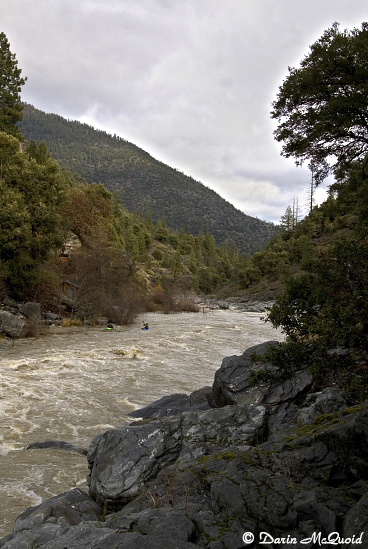
Devin Knight and Sean Malle scouting White House
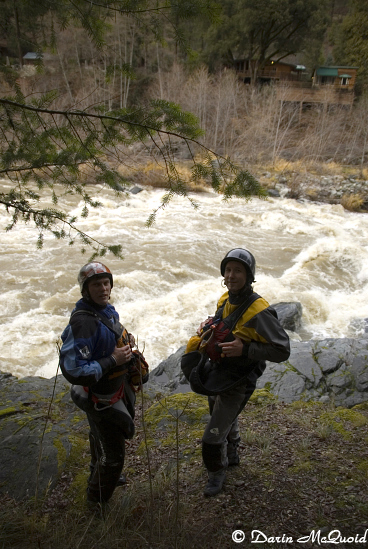
Devin Knight melting through a wave on White House rapid of the Scott River.
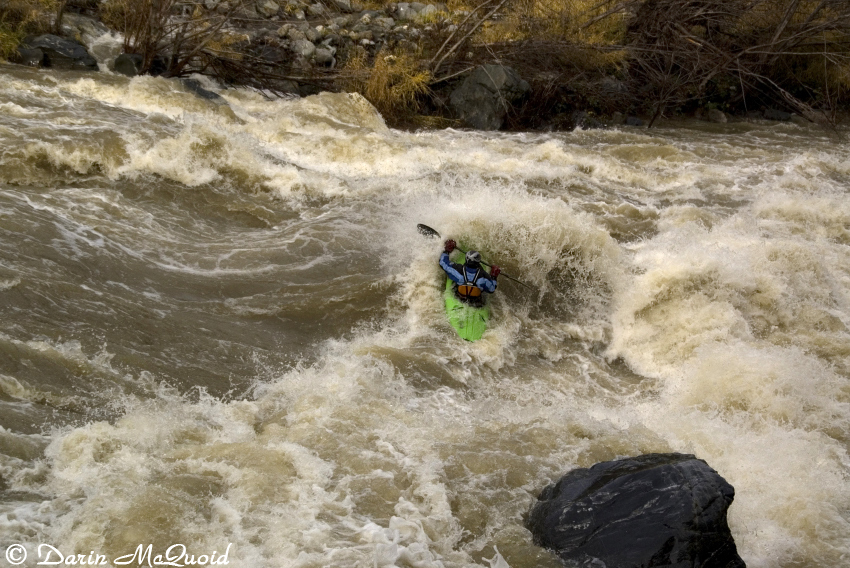
Sean Malle was following close but got pushed a bit too far right and got caught by a lateral.
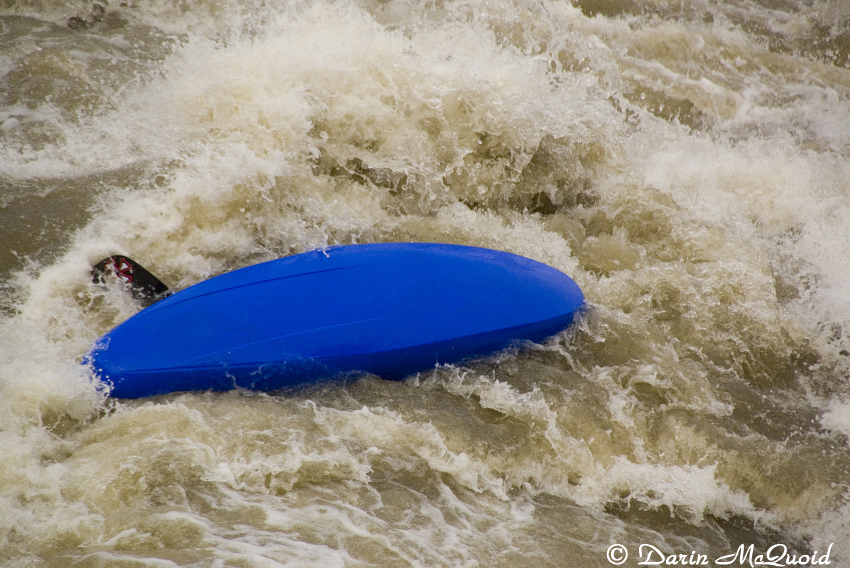
Sean Malle showing a solid combat roll.
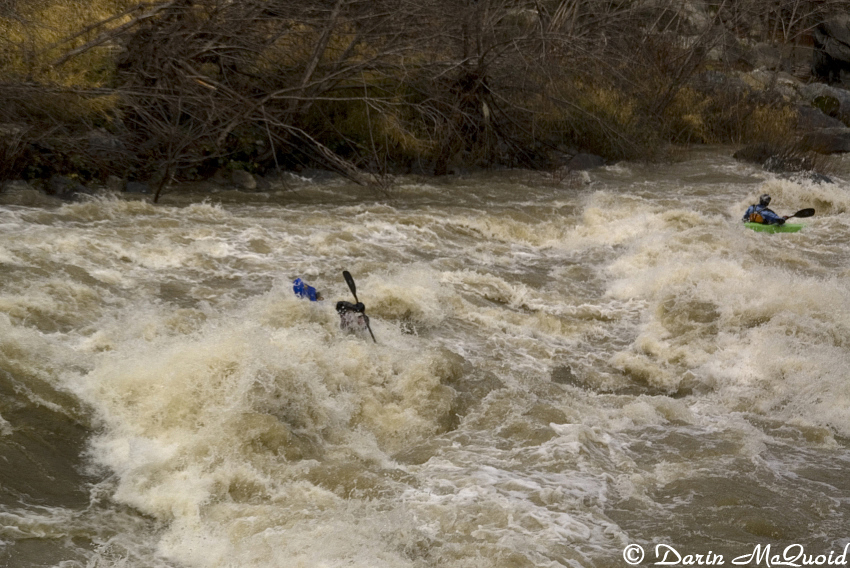
Glad we scouted, Devin Knight probes Schulers Gulch rapid.
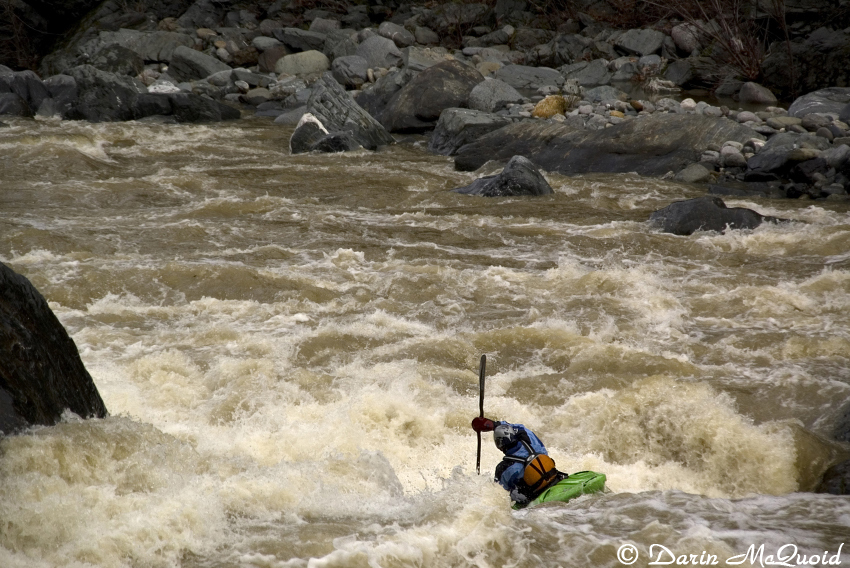
Sean Malle lining up the hole.
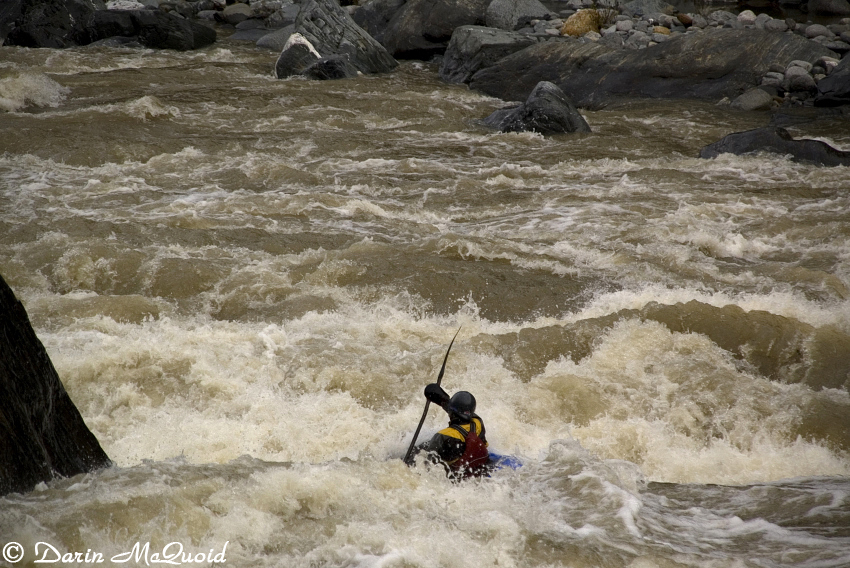
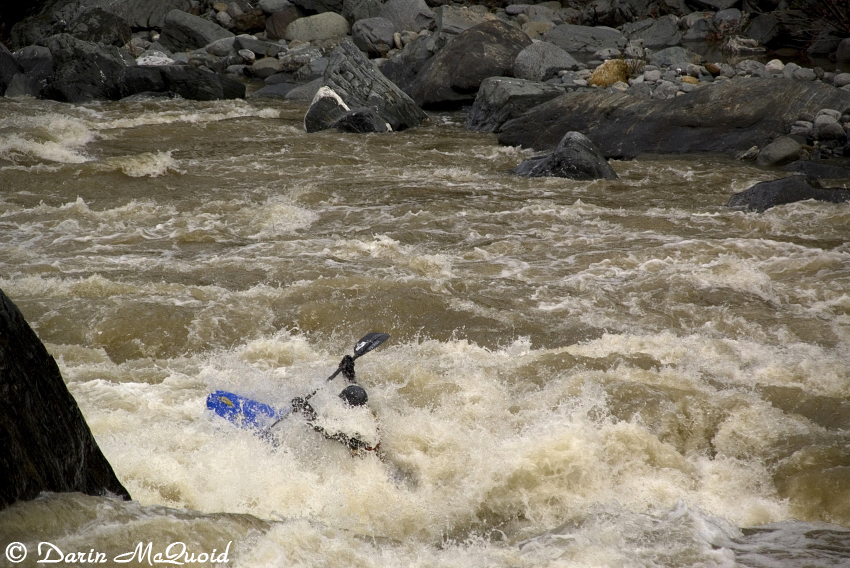
Devin and Sean loading up at the take-out.
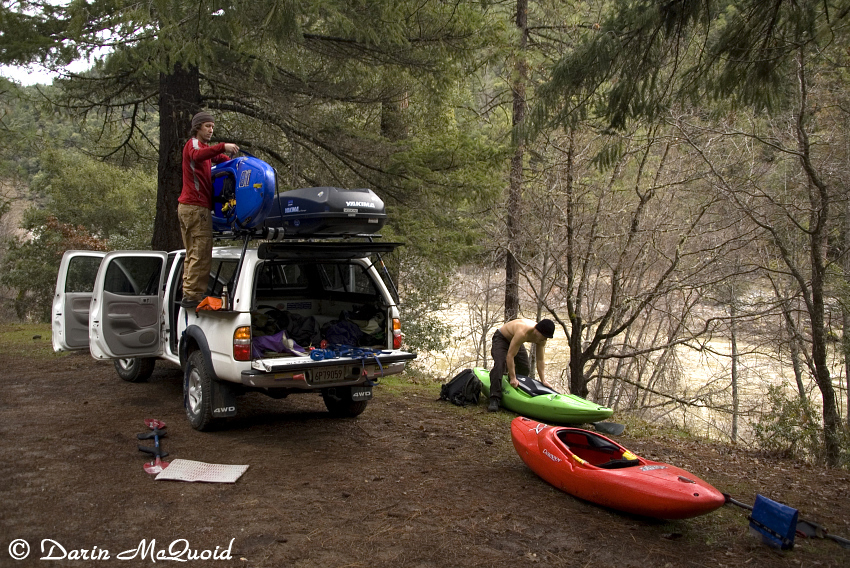
IV-V
The
Scott River has been a long time backyard run, and at low
water was
the first “IV-V” run I did. I put IV-V in quotes
because those are rafting ratings, generally a bit over-rated for
kayaks. I got a call in the morning from Devin Knight inviting me to
join him and Sean Malle for a run down the Scott. I thought it sounded
great as the flows were high and who can turn down another day of
kayaking?

The
Scott River is a unique river for California. It drains the
west
side of the Marble and Russian Wilderness areas, while the Cal-Salmon
drains the east side. Unlike the Cal-Salmon the Scott River drops out
of the wilderness and proceeds to meander for twenty plus miles through
the beautiful Scott Valley, which somehow escaped the profuse
construction of dams on anything remotely offering the opportunity.
Post meandering in the valley, Scott River drops into a
canyon for thirty miles until it’s confluence with the
Klamath River.
Once we hit the canyon section of the drive excitement went up as we saw that the Scott was over its banks in the valley, but right up to the top of the riverbed in the canyon. The gauge at Fort Jones was reporting 4,300 at Fort Jones, and the river was gaining at least 1,000cfs more from several major tributaries before the run. This put flows at over 5,000, a good 2,000cfs above the normal recommended levels. We had all run the Scott before, with my personal previous high flow a fun 1,500 and Devin with a high flow of 3,000 or so. We were curious to see how it would look from the shuttle road, and while it looked big and pushy, it also looked very manageable.
I won’t go into too much detail as this run is described in detail by superb write-ups that will be listed later. We made quick time through big pushy water down to White House, which was completely washed out big had a massive wave instead of the normal hole.
Once we hit the canyon section of the drive excitement went up as we saw that the Scott was over its banks in the valley, but right up to the top of the riverbed in the canyon. The gauge at Fort Jones was reporting 4,300 at Fort Jones, and the river was gaining at least 1,000cfs more from several major tributaries before the run. This put flows at over 5,000, a good 2,000cfs above the normal recommended levels. We had all run the Scott before, with my personal previous high flow a fun 1,500 and Devin with a high flow of 3,000 or so. We were curious to see how it would look from the shuttle road, and while it looked big and pushy, it also looked very manageable.
I won’t go into too much detail as this run is described in detail by superb write-ups that will be listed later. We made quick time through big pushy water down to White House, which was completely washed out big had a massive wave instead of the normal hole.
Devin Knight and Sean Malle scouting White House

Devin Knight melting through a wave on White House rapid of the Scott River.

Sean Malle was following close but got pushed a bit too far right and got caught by a lateral.

Sean Malle showing a solid combat roll.

Three
miles of big wave train boogie water followed until we were
at
“Schulers Gulch” rapid, rated V by rafters and at
normal flows a V- for kayakers, and at 5,000cfs we thought it was
harder than anything the Cal-Salmon or Burnt Ranch had to offer at high
flows. Big waves and holes pushed into the undercut rock/sieve
combination, and instead of a mellow ramp through the gateway rocks we
found a big stomping hole.
Glad we scouted, Devin Knight probes Schulers Gulch rapid.

This
is about 5% of the whole rapid, it’s a big long affair
that simply can’t be captured by camera at river level. It
had about fifty yards leading into this spot, and another hundred and
fifty yards of stout rapids downstream. So fun to run something with
five or more mandatory moves!
Sean Malle lining up the hole.


The
Scott normally has one more IV after Schulers, and then a
long
II-III paddle out that was super fun at high flows with overhead wave
trains everywhere.
Devin and Sean loading up at the take-out.

If
you are a class V boater and in the Northern California area,
and
the Scott is at an unusual flow above 3,500 I would consider it a must
do, and at 5,000 is the most fun I have had on a river in a long time.
Superb detailed write-ups of the Scott River are online at Oregon Kayaking and California Creeks. The majority of the run is roadside. Keep your eyes peeled for one unusually large rapid early on that you may want to put in below (or above) depending on your mood. Take out requires either a four wheel drive vehicle to access an unmarked but legal take out above Scott Bar. The other option is to take out a ways below town, as locals are not friendly to kayakers who wish to take out at the bridge in town.
Superb detailed write-ups of the Scott River are online at Oregon Kayaking and California Creeks. The majority of the run is roadside. Keep your eyes peeled for one unusually large rapid early on that you may want to put in below (or above) depending on your mood. Take out requires either a four wheel drive vehicle to access an unmarked but legal take out above Scott Bar. The other option is to take out a ways below town, as locals are not friendly to kayakers who wish to take out at the bridge in town.
HTML
Comment Box is loading comments...